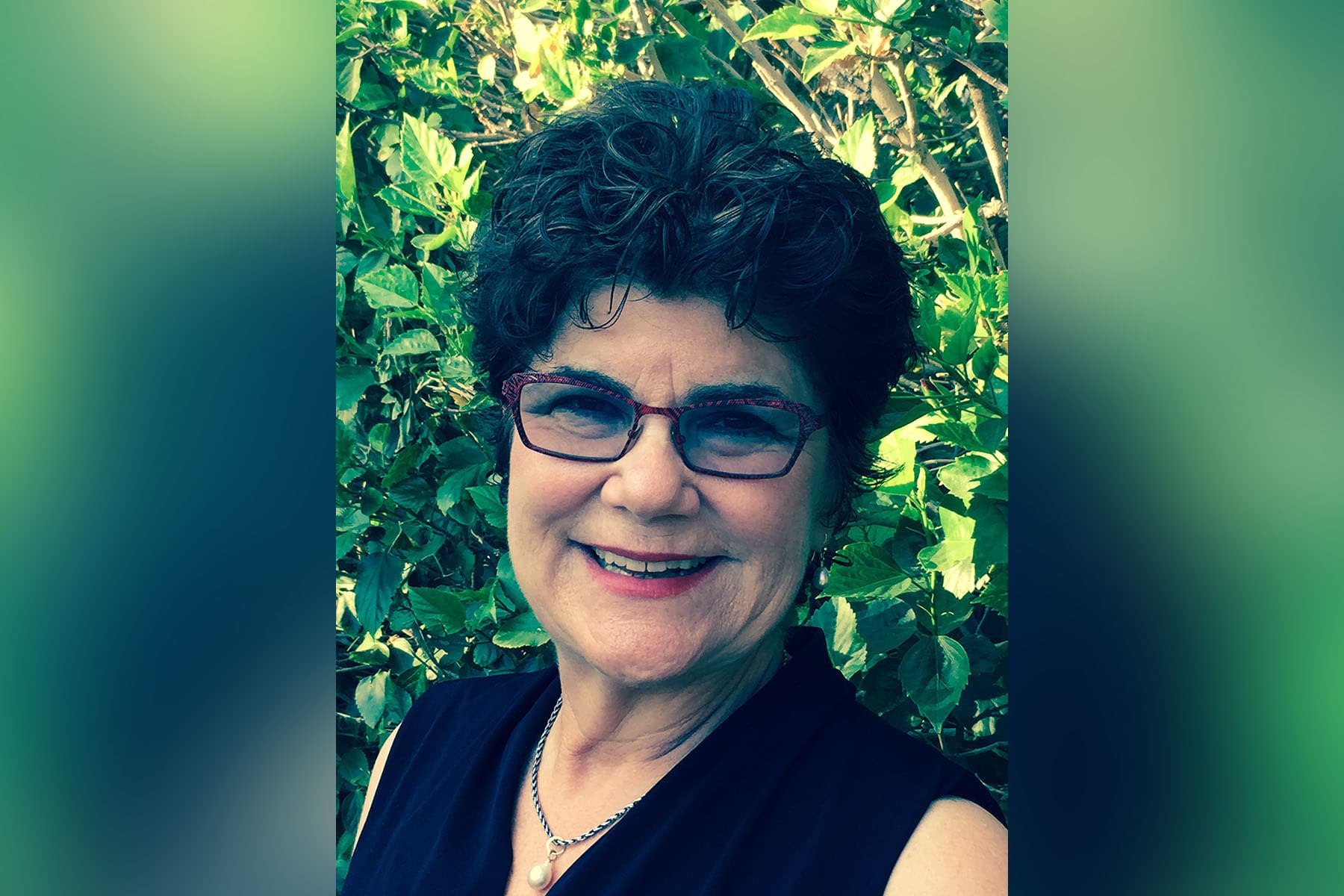
In 1978, Rabbi Karen Fox became the fifth woman rabbi in the United States. Thanks to influential leaders like Rabbi Sally Jane Priesand, the country’s first woman rabbi, as well as other rabbis she’d worked with at a Jewish summer camp, Fox realized that she too could get ordained.
“The rabbis at the camp looked like they were having a good time doing meaningful work,” she said. “This interested me because I liked the integration of studying and talking with people.”
Fox, the daughter of Holocaust survivors, grew up in Orange County, California. Her parents helped start Temple Beth Tikvah in Fullerton, and Fox got involved with the Reform youth movement as a kid. She went to Camp Swig and Camp Hess Kramer and later worked at Swig for several summers. In 1973, she started learning at Hebrew Union College-Jewish Institute of Religion.
Once she graduated and became ordained, she served as the New Jersey regional director for the Union of American Hebrew Congregations.
“I went out to a lot of synagogues, and people had never met a woman rabbi before.”
“I went out to a lot of synagogues, and people had never met a woman rabbi before,” Fox said. “Often I was the first woman they met who taught Torah and led discussions and tefillah.”
At first, being a rabbi was both difficult and fulfilling. “It was certainly challenging, and there were moments when it was quite terrific,” she said. “I could marry people, or escort people after death and comfort them. But it was not an easy path.”
Following her position as regional director, Fox was appointed as the first woman rabbi to serve at Wilshire Boulevard Temple. It was a position she held for 25 years until she officially retired from the synagogue in 2015. While at Wilshire, she was the director at Camp Hess Kramer, and was honored with the title of “Legend” of the Wilshire Boulevard Temple camps.
Though her community appreciated her, Fox still faced some roadblocks because of her gender. There was one family who didn’t want to come near her; the parents called her the “girl rabbi,” she said. However, years down the line, when the son got married, he called Fox, and she officiated the wedding.
“People didn’t necessarily want me to be the rabbi to conduct their family member’s funeral,” she said. “My mentor was Rabbi Harvey J. Fields, the senior rabbi at Wilshire at the time, and he said that I was the only rabbi who was available. I had good support from the professional staff there.”
Fox acknowledged that it simply took time for some members of the community to adjust. “They could see that I was able to express a relationship with God, care for them and communicate Jewish values,” she said. “They saw that I was a rabbi just like all the rabbis who had come before me.”
Fox, who is also a licensed California marriage and family psychotherapist, always had to balance her rabbinical duties with her role as a mom to two sons.
“I needed to have quality time with my own family as well as my congregants,” she said. “I was very lucky to have been with a synagogue that had Kabbalat Shabbat very early, at 6 p.m., so I could be home for dinner by 7:30 and have those experiences with my kids. When their kids are small, women have to balance the energy they have for work, which takes focus, concentration, study and attention to people and details. At the same time, they have a family at home. My husband [Michael Rosen] was a great rabbinic spouse and he was also involved in the synagogue.”
Today, Fox is a grandmother to four grandkids. She teaches two courses to rabbinical students at Hebrew Union College, including a class on professional ethics, and counsels clergy like rabbis, cantors and ministers.
“I did a support group for rabbis who were balancing being parents and full-time rabbinic leaders during the pandemic,” she said. “They could feel like they weren’t the only ones trying to be a rabbi and balance being a parent during a very dark time.”
Along with Rabbi Priesand, another woman who inspired Fox to follow her dreams was her Great Aunt Charlotte. Charlotte was a Holocaust survivor who went to The Sorbonne in the 1920s and became a psychologist. Fox said, “My great aunt told me that if she could become a therapist and study in the 1920s, then I could become a rabbi.”
Fast Takes With Karen Fox
Jewish Journal: What book is on your nightstand right now?
Karen Fox: “Sapiens” by Yuval Noah Harari. It just sits there. I read a chapter and then I put it down. Too depressing.
JJ: What’s your favorite Jewish food?
KF: Latkes, but they have to be very thin and crispy. My mother made them much better than I do.
JJ: I know you like to ride bikes. What kind of bike do you have?
KF: I have a regular road bike. The year I retired from Wilshire, I did a weeklong ride to benefit the Israel Movement for Progressive Judaism. It started in the Golan and ended near Tel Aviv.
JJ: What do you like best about being a grandmother?
KF: Oh, hugs. My grandkids live far away. I have one in New York and three in Vienna, so I really look forward to those hugs.





















 More news and opinions than at a Shabbat dinner, right in your inbox.
More news and opinions than at a Shabbat dinner, right in your inbox.